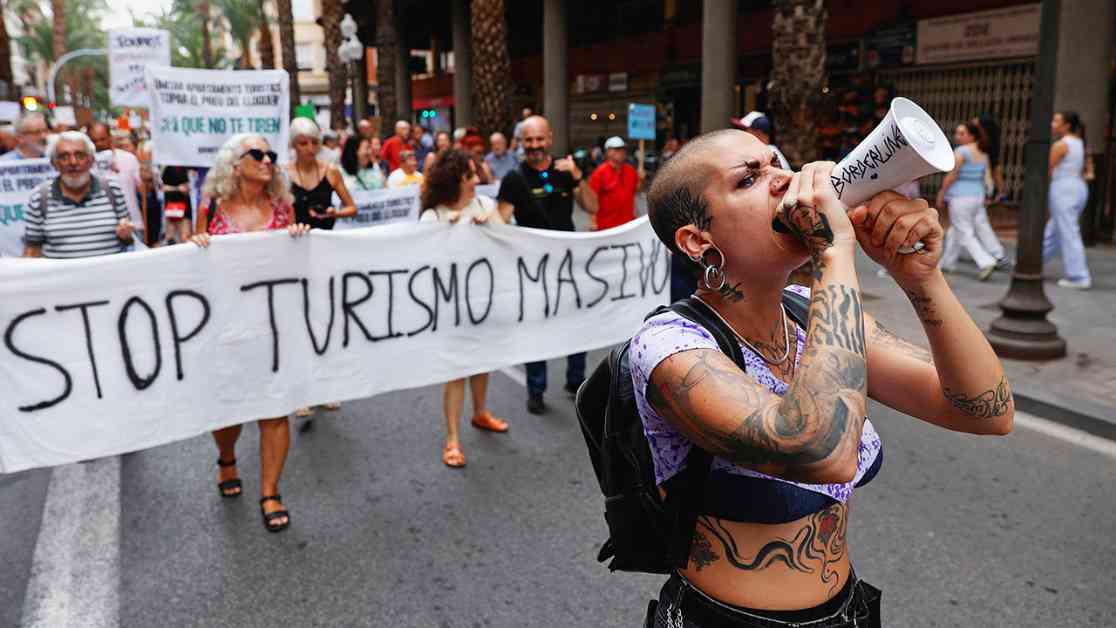The tourism industry is facing a wave of backlash in popular destinations around the world. From Barcelona to Athens, residents are expressing their frustration with the negative impacts of mass tourism on their communities. Anti-tourist protests, water pistol attacks on guests, and calls for an end to overtourism have become increasingly common, highlighting the need for sustainable solutions to address these issues.
The Impact of Overtourism
Barcelona, known for its beautiful beaches and vibrant culture, has become a hotspot for tourists from around the world. However, the influx of visitors has put a strain on the city’s infrastructure and led to overcrowding in popular tourist areas. Residents have grown tired of the constant flow of tourists and the disruption they bring to their daily lives.
In response to the growing discontent, some residents have taken matters into their own hands, resorting to extreme measures like firing water pistols at tourists. These actions may be seen as extreme, but they reflect the frustration felt by many locals who feel their city is being overrun by visitors.
The situation is not unique to Barcelona. Cities like Athens, the Balearic and Canary Islands, and even Seoul are grappling with similar issues. In Athens, locals have gone as far as holding funerals for their neighborhoods, mourning the loss of their community to the tourism industry. In Seoul, a historic neighborhood is imposing a 5pm curfew on visitors in an attempt to preserve the area’s cultural heritage.
The Flaws in the War on Tourism
While the backlash against overtourism is understandable, it is important to consider the broader implications of restricting tourism. The tourism industry plays a significant role in the global economy, providing jobs and driving economic growth in many countries. By demonizing tourists and imposing strict regulations on travel, cities risk alienating a vital source of revenue.
Additionally, the war on tourism may overlook the root causes of overtourism. Instead of blaming tourists for the negative impacts on their communities, residents and authorities should work together to address the underlying issues, such as inadequate infrastructure, unsustainable tourism practices, and a lack of regulation.
Sustainable Solutions for the Tourism Industry
To combat overtourism and ensure the long-term sustainability of the tourism industry, cities must implement proactive measures to manage visitor numbers and minimize the negative impacts on local communities. This includes investing in infrastructure improvements, promoting responsible tourism practices, and engaging with residents to ensure their voices are heard.
One effective strategy is to diversify tourism offerings and promote off-the-beaten-path destinations to spread out the influx of visitors. By encouraging tourists to explore lesser-known areas and engage in authentic cultural experiences, cities can alleviate the pressure on popular tourist hotspots and distribute the economic benefits more evenly.
Furthermore, implementing smart technology solutions, such as crowd management systems and data analytics, can help cities monitor visitor flows and anticipate overcrowding in advance. By leveraging technology to optimize the tourist experience, cities can create a more sustainable tourism model that benefits both visitors and residents alike.
In conclusion, the war on tourism is a complex issue that requires a nuanced approach to balance the economic benefits of the industry with the need to protect local communities and cultural heritage. By working together to implement sustainable solutions and promote responsible tourism practices, cities can ensure a brighter future for the tourism industry and create a more harmonious relationship between visitors and residents.

















